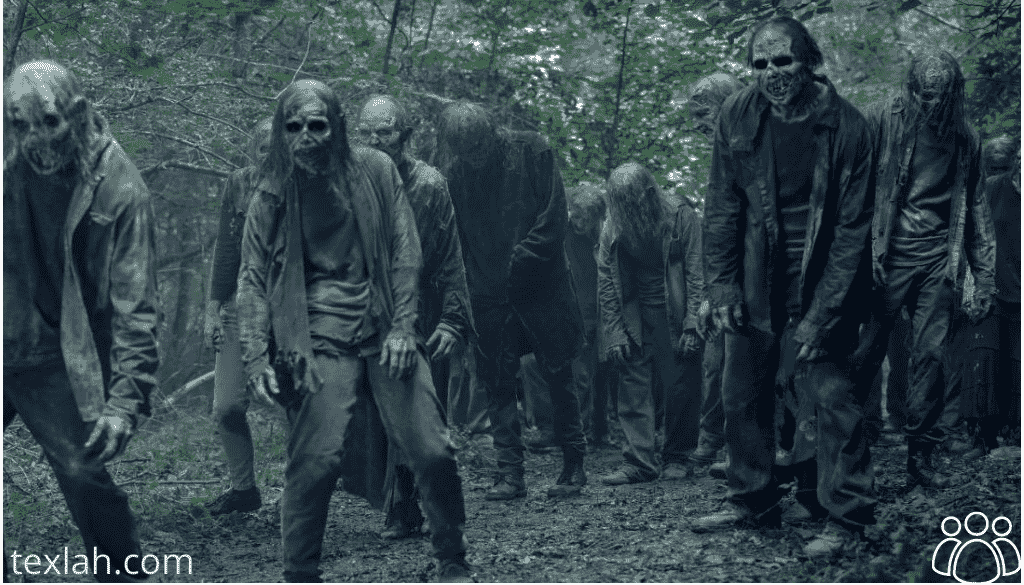While zombies are a staple of horror fiction, there’s no scientific evidence supporting their existence as reanimated corpses. However, certain real-life phenomena, like parasites manipulating host behavior or rare neurological disorders, share similarities zombie traits. Despite this, the idea of a zombie apocalypse continues to intrigue and entertain people worldwide. Thus, explore whether Are zombies real?
In popular culture, zombies have become a staple of horror movies, TV shows, and literature, but are they more than just fictional creatures? Let’s delve into the question: Are zombies real?

Read More: A Turtle Without Shell
The Origin of Zombies: Zombies are real
The concept of zombies originates from folklore and mythology, particularly in African and Caribbean cultures. In these traditions, zombies are reanimated corpses controlled by sorcerers or practitioners of voodoo. This notion gained popularity in Western culture through literature, film, and television, where zombies are depicted as undead creatures craving human flesh. While the idea of zombies as depicted in popular media is fictional, it taps into primal fears of death, loss of control, and societal collapse. The portrayal of zombies has evolved over time, reflecting contemporary anxieties and cultural perceptions. Despite their fictional nature, zombies remain a compelling subject of fascination and exploration in various forms of entertainment and storytelling.
In Haitian folklore, zombies trace their origins back to the belief that voodoo priests could reanimate the dead to serve as mindless slaves. These zombies were depicted not as flesh-eating monsters but rather as people under the control of sorcerers.
Zombies in Popular Culture
Zombies have become ubiquitous in popular culture, appearing across movies, TV shows, video games, and literature. Films like “Night of the Living Dead” and “Dawn of the Dead” defined the modern zombie, depicting hordes of reanimated corpses craving human flesh. TV series like “The Walking Dead” explored survival and societal breakdown in a post-apocalyptic world overrun by the undead. Video games such as “Resident Evil” offer immersive experiences battling zombies. In literature, authors like Max Brooks present unique perspectives, as seen in “World War Z.” Overall, zombies have captivated global audiences their terrifying portrayal in popular culture.
From George A. Romero’s iconic “Night of the Living Dead” to modern-day blockbusters like “The Walking Dead,” zombies have captured the imagination of audiences worldwide. These fictional zombies are typically portrayed as reanimated corpses driven by an insatiable hunger for human flesh.
The Science Behind Zombies
The concept of zombies, as depicted in popular culture, typically involves reanimated corpses that feed on the flesh of the living. While purely fictional, certain real-world phenomena exhibit elements of zombie-like behavior. For instance, certain parasites, like the toxoplasma gondii parasite, can infect the brains of animals, altering their behavior in ways that resemble zombie-like traits. Additionally, certain neurological conditions or drug-induced states can result in behaviors that mimic aspects of zombie behavior, such as impaired motor function, altered consciousness, or aggressive tendencies. However, the notion of corpses rising from the dead and terrorizing the living is purely a product of fiction and has no basis in scientific reality. Despite this, the fascination zombies persists, serving as a reflection of societal fears, anxieties, and the human fascination mortality and the unknown.
While there is no scientific evidence supporting the existence of reanimated corpses, certain real-life phenomena share similarities the fictional concept of zombies. For example, certain parasites can hijack the behavior of their hosts, leading them to engage in actions that benefit the parasite’s survival.
Neurological Disorders
Neurological disorders can sometimes result in behaviors that resemble those associated zombies. Conditions like rabies, which affects the brain and nervous system, can lead to aggressive behavior, confusion, and hypersalivation, reminiscent of zombie-like traits. Similarly, certain forms of encephalitis, a brain inflammation, can cause delirium, hallucinations, and erratic movements. While these conditions can induce behaviors that may seem reminiscent of zombies, it’s crucial to understand that they are medical conditions specific causes and treatments, distinct from the fictional portrayal of zombies in popular culture.
In rare cases, neurological disorders can cause individuals to exhibit zombie-like behavior, such as a loss of self-awareness or the inability to control their actions. Conditions like Cotard’s syndrome, also known as “walking corpse syndrome,” cause people to believe they are dead or do not exist.
The Zombie Apocalypse
The concept of a zombie apocalypse has captured the imagination of many, fueled by movies, TV shows, and literature. In this scenario, a widespread outbreak of zombification occurs, leading to the collapse of civilization as we know it. While purely fictional, the idea raises questions about societal collapse, survival instincts, and the human capacity for resilience. Despite its entertainment value, the likelihood of a real zombie apocalypse is virtually nonexistent. However, the fascination this idea persists, serving as a reflection of our fears, desires, and cultural anxieties about the unknown and the unpredictable.
Despite the lack of evidence for reanimated corpses, the concept of a zombie apocalypse continues to capture the public’s imagination. Government agencies have even created preparedness plans and survival guides for a hypothetical zombie outbreak as a tongue-in-cheek way to educate the public about emergency preparedness.
Conclusion: Are Zombies Real?
In conclusion, while zombies are a popular trope in fiction and media, there is no scientific evidence to support their existence in reality. The concept of zombies is deeply rooted in mythology, folklore, and popular culture, but it remains purely fictional. While there are real-life phenomena that may bear similarities to certain aspects of zombie mythology, such as neurological disorders or viral outbreaks, the idea of reanimated corpses is purely speculative and has no basis in scientific fact. Thus, while zombies continue to captivate our imagination, they remain creatures of fiction rather than reality.
Discover in-depth and reliable information on Texlah, your go-to platform for insightful content.
